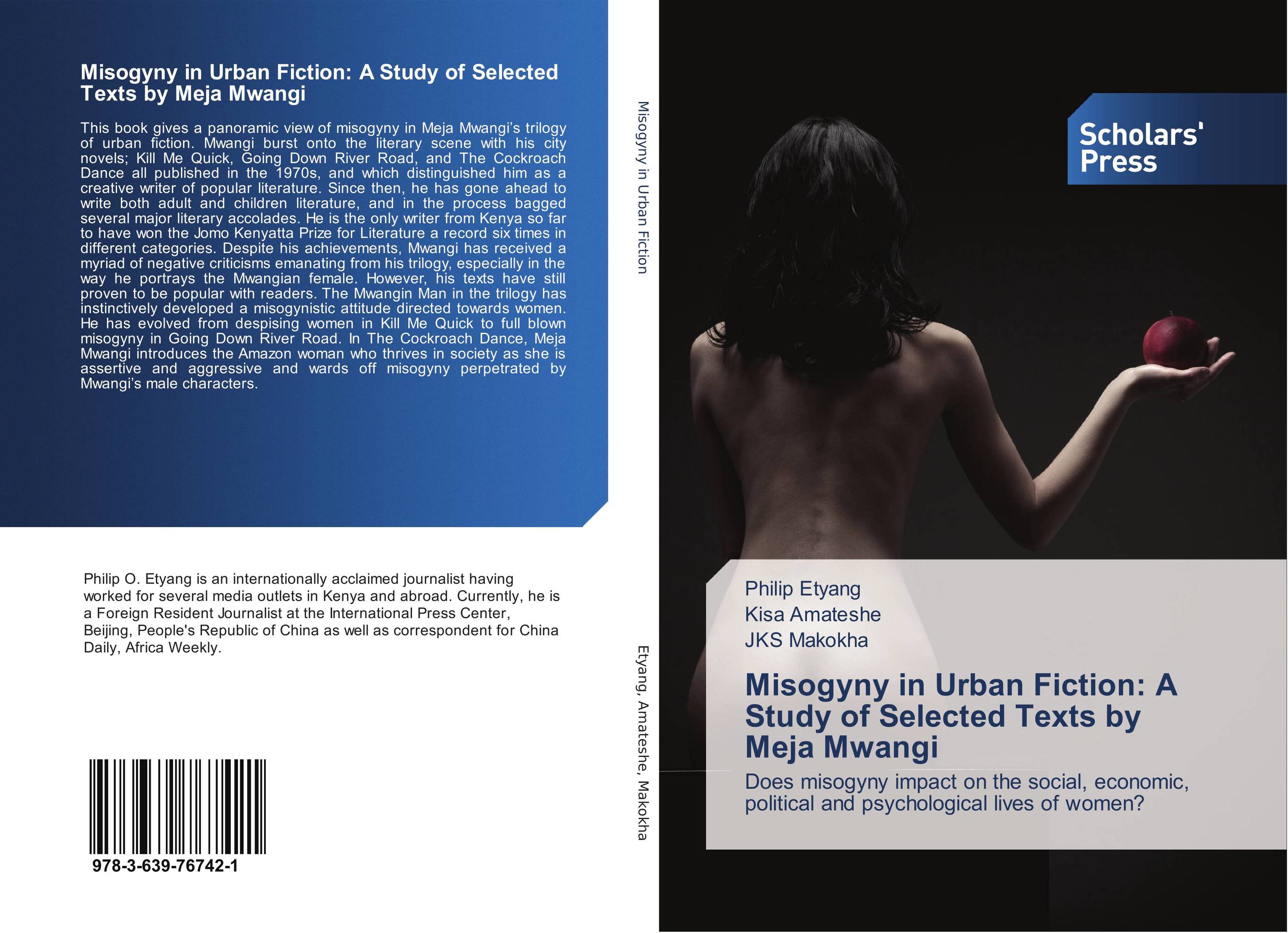| Поиск по каталогу |
|
(строгое соответствие)
|
- Профессиональная
- Научно-популярная
- Художественная
- Публицистика
- Детская
- Искусство
- Хобби, семья, дом
- Спорт
- Путеводители
- Блокноты, тетради, открытки
Misogyny in Urban Fiction: A Study of Selected Texts by Meja Mwangi. Does misogyny impact on the social, economic, political and psychological lives of women?

В наличии
| Местонахождение: Алматы | Состояние экземпляра: новый |

Бумажная
версия
версия
Автор: Philip Etyang,Kisa Amateshe and JKS Makokha
ISBN: 9783639767421
Год издания: 2015
Формат книги: 60×90/16 (145×215 мм)
Количество страниц: 124
Издательство: Scholars' Press
Цена: 35162 тг
Положить в корзину
| Способы доставки в город Алматы * комплектация (срок до отгрузки) не более 2 рабочих дней |
| Самовывоз из города Алматы (пункты самовывоза партнёра CDEK) |
| Курьерская доставка CDEK из города Москва |
| Доставка Почтой России из города Москва |
Аннотация: This book gives a panoramic view of misogyny in Meja Mwangi’s trilogy of urban fiction. Mwangi burst onto the literary scene with his city novels; Kill Me Quick, Going Down River Road, and The Cockroach Dance all published in the 1970s, and which distinguished him as a creative writer of popular literature. Since then, he has gone ahead to write both adult and children literature, and in the process bagged several major literary accolades. He is the only writer from Kenya so far to have won the Jomo Kenyatta Prize for Literature a record six times in different categories. Despite his achievements, Mwangi has received a myriad of negative criticisms emanating from his trilogy, especially in the way he portrays the Mwangian female. However, his texts have still proven to be popular with readers. The Mwangin Man in the trilogy has instinctively developed a misogynistic attitude directed towards women. He has evolved from despising women in Kill Me Quick to full blown misogyny in Going Down River Road. In The Cockroach Dance, Meja Mwangi introduces the Amazon woman who thrives in society as she is assertive and aggressive and wards off misogyny perpetrated by Mwangi’s male characters.
Ключевые слова: African literature, feminism, Literature, masculinity, Urban Fiction, Misogyny, Meja Mwangi, Gender equality, Meja and Maina, Philip Etyang



